Abdominal Pain
How to submit an article:
- Registered users can submit any published journal article that has a unique DOI (Digital Object Identifier) name or link to Research Hub.
- For example, you can paste the full DOI link:
https://doi.org/10.1109/5.771073or just the DOI name:10.1109/5.771073into the field above and click submit. - The person who is first to submit a valid article to Research Hub will forever be credited for it, and every article submission earns you +6 Research Points.
Published research studies are articles that present the findings of original research that has undergone a peer-review process and has been made publicly available in scholarly journals, books or other media.
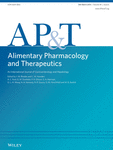
Systematic review and meta‐analysis: efficacy of peppermint oil in irritable bowel syndrome
2022 Aug 09 Alimentary Pharmacology & Therapeutics Ingrosso MR, Ianiro G, Nee J, Lembo AJ, Moayyedi P, Black CJ, et al.
Systematic Review Meta-Analysis Irritable Bowel Syndrome Peppermint OilPeppermint oil proved more effective than placebo in treating irritable bowel syndrome symptoms, but with an increased rate of adverse events.

Acupuncture for Relieving Abdominal Pain and Distension in Acute Pancreatitis: A Systematic Review and Meta-Analysis
2021 Dec 03 Frontiers in Psychiatry Zhu F, Yin S, Zhu X, Che D, Li Z, Zhong Y, et al.
Acupuncture in combination with RT has a better effect than RT alone for relieving abdominal pain and distension in acute pancreatitis (AP).
Systematic Review Meta-Analysis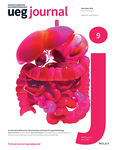
A trial‐based economic evaluation of peppermint oil for the treatment of irritable bowel syndrome
2021 Sep United European Gastroenterology Journal Weerts ZZRM, Essers BAB, Jonkers DMAE, Willems JIA, Janssen DJPA, Witteman BJM, et al.
Randomised Controlled Trial Peppermint Oil Peppermint Irritable Bowel SyndromeSmall-intestinal release peppermint oil is a cost-effective treatment for Irritable Bowel Syndrome, yielding modest quality of life gains and relieving abdominal pain.
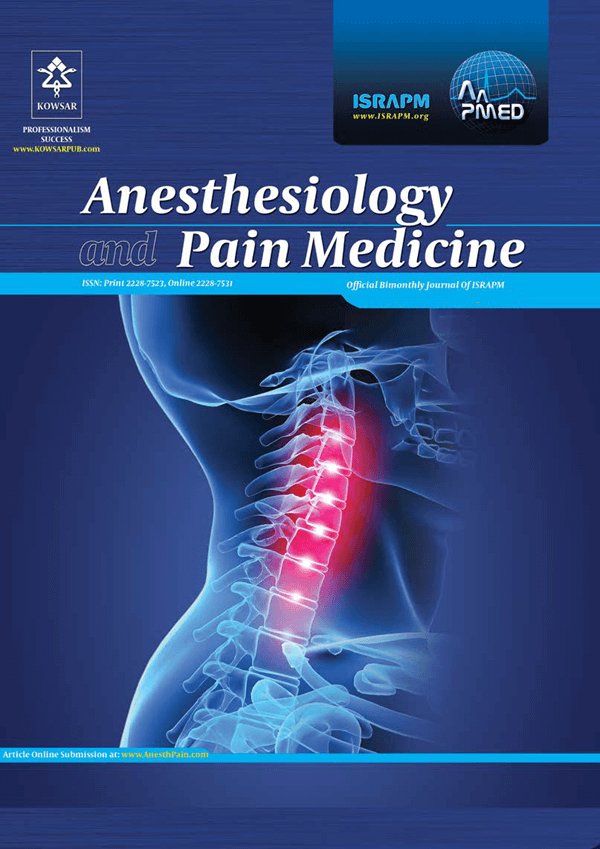
Efficacy of Acupuncture in the Treatment of Chronic Abdominal Pain
2021 Mar 17 Anesthesiology and Pain Medicine Berger AA, Liu Y, Jin K, Kaneb A, Welschmeyer A, Cornett EM, et al.
Review Article Irritable Bowel Syndrome Inflammatory Bowel Disease Abdominal PainAcupuncture has shown promise as a complementary approach in treating chronic abdominal pain, providing symptom relief and improving quality of life.
Acupuncture is shown to be a beneficial supplementary treatment for chronic abdominal pain, improving patients' quality of life and cutting healthcare costs.

Efficacy and Safety of Acupuncture at Tianshu (ST25) for Functional Constipation: Evidence from 10 Randomized Controlled Trials
2020 Nov 6 Evidence-Based Complementary and Alternative Medicine Li P, Luo Y, Wang Q, Shu S, Chen K, Yu D, et al.
Meta-Analysis ST25Acupuncture at ST25 appears to be more effective than lactulose in the treatment of functional constipation.
Research insights are moderated by the Research Hub team and offer an at-a-glance overview of interesting research findings.

2022 Alimentary Pharmacology & Therapeutics
Peppermint oil proved more effective than placebo in treating irritable bowel syndrome symptoms, but with an increased rate of adverse events.
Systematic Review Irritable Bowel Syndrome Peppermint Oil
Systematic review and meta‐analysis: efficacy of peppermint oil in irritable bowel syndrome
Ingrosso MR, Ianiro G, Nee J, Lembo AJ, Moayyedi P, Black CJ, et al.

2021 United European Gastroenterology Journal
Small-intestinal release peppermint oil is a cost-effective treatment for Irritable Bowel Syndrome, yielding modest quality of life gains and relieving abdominal pain.
Randomised Controlled Trial Irritable Bowel Syndrome Peppermint Peppermint Oil
A trial‐based economic evaluation of peppermint oil for the treatment of irritable bowel syndrome
Weerts ZZRM, Essers BAB, Jonkers DMAE, Willems JIA, Janssen DJPA, Witteman BJM, et al.

2021 Anesthesiology and Pain Medicine
Acupuncture is shown to be a beneficial supplementary treatment for chronic abdominal pain, improving patients' quality of life and cutting healthcare costs.
Review Article Inflammatory Bowel Disease Irritable Bowel Syndrome
Efficacy of Acupuncture in the Treatment of Chronic Abdominal Pain
Berger AA, Liu Y, Jin K, Kaneb A, Welschmeyer A, Cornett EM, et al.

2021 Anesthesiology and Pain Medicine
Acupuncture has shown promise as a complementary approach in treating chronic abdominal pain, providing symptom relief and improving quality of life.
Review Article Inflammatory Bowel Disease Irritable Bowel Syndrome
Efficacy of Acupuncture in the Treatment of Chronic Abdominal Pain
Berger AA, Liu Y, Jin K, Kaneb A, Welschmeyer A, Cornett EM, et al.

2020 Evidence-Based Complementary and Alternative Medicine
Acupuncture at ST25 appears to be more effective than lactulose in the treatment of functional constipation.
Meta-Analysis ST25
Efficacy and Safety of Acupuncture at Tianshu (ST25) for Functional Constipation: Evidence from 10 Randomized Controlled Trials
Li P, Luo Y, Wang Q, Shu S, Chen K, Yu D, et al.
Review Articles
Review articles summarise and critically evaluate the current state of research on a specific topic or field by synthesising multiple primary research studies.

Systematic review and meta‐analysis: efficacy of peppermint oil in irritable bowel syndrome
2022 Aug 09 Alimentary Pharmacology & Therapeutics Ingrosso MR, Ianiro G, Nee J, Lembo AJ, Moayyedi P, Black CJ, et al.
Systematic Review Meta-Analysis Irritable Bowel Syndrome Peppermint OilPeppermint oil proved more effective than placebo in treating irritable bowel syndrome symptoms, but with an increased rate of adverse events.

Acupuncture for Relieving Abdominal Pain and Distension in Acute Pancreatitis: A Systematic Review and Meta-Analysis
2021 Dec 03 Frontiers in Psychiatry Zhu F, Yin S, Zhu X, Che D, Li Z, Zhong Y, et al.
Acupuncture in combination with RT has a better effect than RT alone for relieving abdominal pain and distension in acute pancreatitis (AP).
Systematic Review Meta-Analysis
Efficacy of Acupuncture in the Treatment of Chronic Abdominal Pain
2021 Mar 17 Anesthesiology and Pain Medicine Berger AA, Liu Y, Jin K, Kaneb A, Welschmeyer A, Cornett EM, et al.
Review Article Irritable Bowel Syndrome Inflammatory Bowel Disease Abdominal PainAcupuncture has shown promise as a complementary approach in treating chronic abdominal pain, providing symptom relief and improving quality of life.
Acupuncture is shown to be a beneficial supplementary treatment for chronic abdominal pain, improving patients' quality of life and cutting healthcare costs.
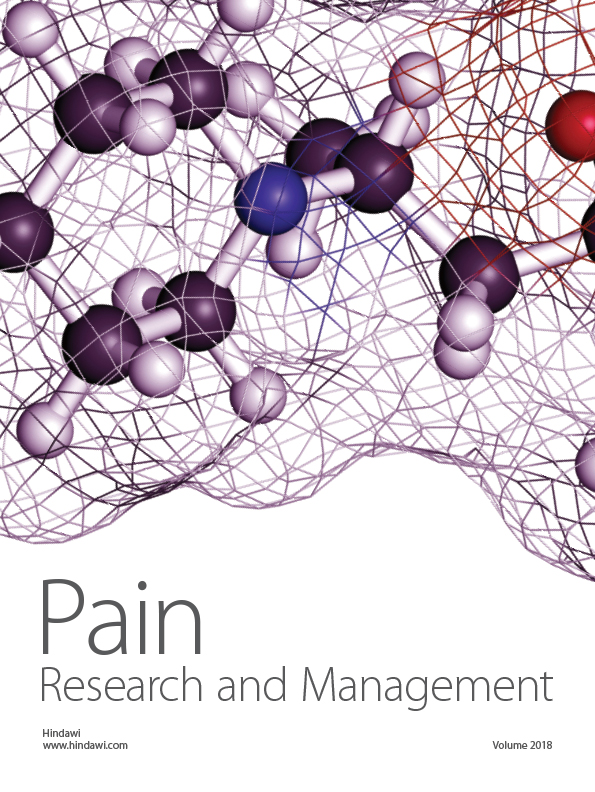
Comparison between the Effects of Acupuncture Relative to Other Controls on Irritable Bowel Syndrome: A Meta-Analysis
2019 Nov 11 Pain Research and Management Zheng H, Chen R, Zhao X, Li G, Liang Y, Zhang H, et al.
Systematic Review Meta-Analysis Digestive Health Irritable Bowel SyndromeAcupuncture could be used as an adjunct in clinical settings to improve efficacy of western medicine for irritable bowel syndrome.

The impact of peppermint oil on the irritable bowel syndrome: a meta-analysis of the pooled clinical data
2019 Jan 17 BMC Complementary Medicine and Therapies Alammar N, Wang L, Saberi B, Nanavati J, Holtmann G, Shinohara RT, et al.
Systematic Review Meta-Analysis Irritable Bowel Syndrome Peppermint OilPeppermint oil has been shown to be a safe and effective treatment for pain and overall symptoms in adults suffering from irritable bowel syndrome.
Clinical Trials
Clinical trials are research studies that involve people and are conducted to evaluate the safety and efficacy of new treatments or interventions, such as drugs, medical devices, or behavioural therapies.

A trial‐based economic evaluation of peppermint oil for the treatment of irritable bowel syndrome
2021 Sep United European Gastroenterology Journal Weerts ZZRM, Essers BAB, Jonkers DMAE, Willems JIA, Janssen DJPA, Witteman BJM, et al.
Randomised Controlled Trial Peppermint Oil Peppermint Irritable Bowel SyndromeSmall-intestinal release peppermint oil is a cost-effective treatment for Irritable Bowel Syndrome, yielding modest quality of life gains and relieving abdominal pain.

Effects of Alkaline-Reduced Drinking Water on Irritable Bowel Syndrome with Diarrhea: A Randomized Double-Blind, Placebo-Controlled Pilot Study
2018 Jan Evidence-Based Complementary and Alternative Medicine Shin DW, Yoon H, Kim HS, Choi YJ, Shin CM, Park YS, et al.
Clinical Study Randomised Controlled Trial Diarrhoea Irritable Bowel SyndromeDrinking alkaline-reduced water can improve the quality of life in patients suffering from diarrhea-predominant irritable bowel syndrome.
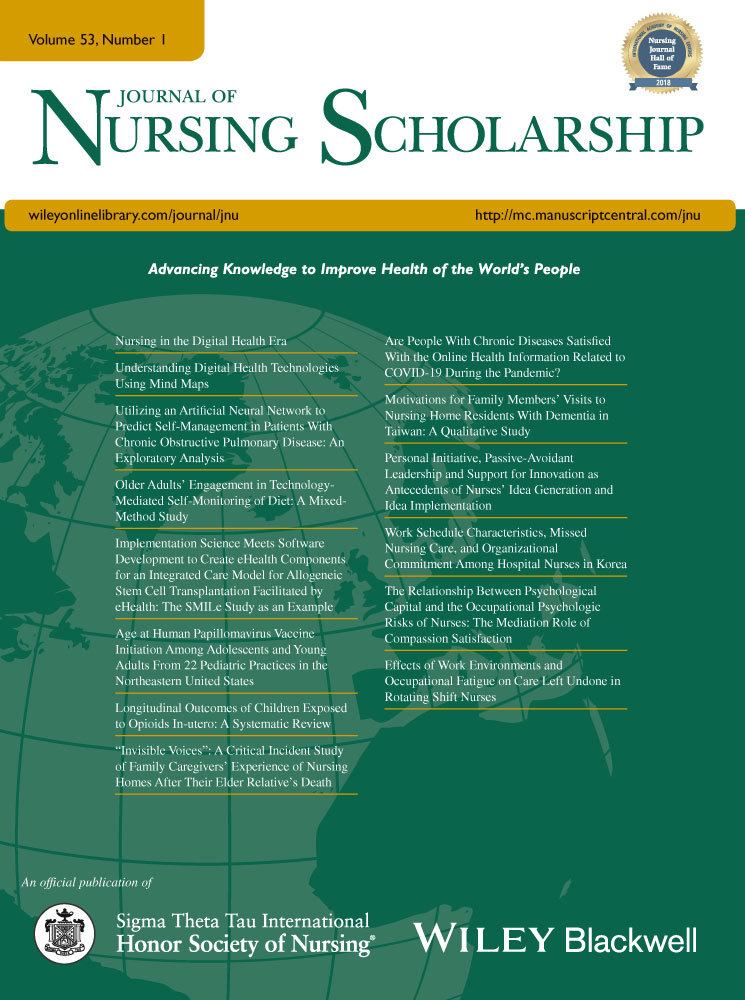
Effects of Auricular Acupressure Therapy on Primary Dysmenorrhea for Female High School Students in South Korea
2016 Aug 19 Journal of Nursing Scholarship Nam Hyun Cha, Sohyune R. Sok
Auricular acupressure therapy was an effective intervention for alleviating abdominal pain, back pain, and primary dysmenorrhea of female high school students in South Korea. For feasibility of the auricular acupressure therapy in practice, it is needed to train and learn the exact positions of acupoints in ear.
Randomised Controlled Trial Period Pain AcupressureStudy Protocols
Published study protocols are detailed plans that outline the objectives, methodology, statistical analyses, and organisation of a research study that have been made publicly available for others to review and use as a reference.
Presentation Slides

Systematic Review
Peppermint oil proved more effective than placebo in treating irritable bowel syndrome symptoms, but with an increased rate of adverse events.
Ingrosso MR, Ianiro G, Nee J, Lembo AJ, Moayyedi P, Black CJ, Ford AC

Randomised Controlled Trial
Small-intestinal release peppermint oil is a cost-effective treatment for Irritable Bowel Syndrome, yielding modest quality of life gains and relieving abdominal pain.
Weerts ZZRM, Essers BAB, Jonkers DMAE, Willems JIA, Janssen DJPA, Witteman BJM, Clemens CHM, Westendorp A, Masclee AAM, Keszthelyi D

Review Article
Acupuncture is shown to be a beneficial supplementary treatment for chronic abdominal pain, improving patients' quality of life and cutting healthcare costs.
Berger AA, Liu Y, Jin K, Kaneb A, Welschmeyer A, Cornett EM, Kaye AD, Imani F, Khademi SH, Varrassi G, Viswanath O, Urits I

Review Article
Acupuncture has shown promise as a complementary approach in treating chronic abdominal pain, providing symptom relief and improving quality of life.
Berger AA, Liu Y, Jin K, Kaneb A, Welschmeyer A, Cornett EM, Kaye AD, Imani F, Khademi SH, Varrassi G, Viswanath O, Urits I

Meta-Analysis
Acupuncture at ST25 appears to be more effective than lactulose in the treatment of functional constipation.
Li P, Luo Y, Wang Q, Shu S, Chen K, Yu D, Fan C.

Systematic Review
Acupuncture could be used as an adjunct in clinical settings to improve efficacy of western medicine for irritable bowel syndrome.
Zheng H, Chen R, Zhao X, Li G, Liang Y, Zhang H, Chi Z

Systematic Review
Peppermint oil has been shown to be a safe and effective treatment for pain and overall symptoms in adults suffering from irritable bowel syndrome.
Alammar N, Wang L, Saberi B, Nanavati J, Holtmann G, Shinohara RT, Mullin GE
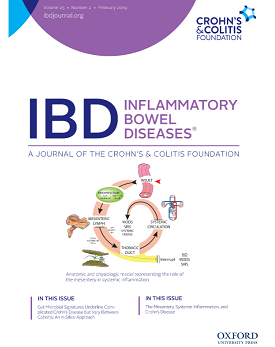
Practice Guideline
Acupuncture has been shown to decrease disease activity and inflammation via increase of vagal activity in inflammatory bowel disease.
Gengqing Song, MD, Claudio Fiocchi, MD, Jean-Paul Achkar, MD

Clinical Study
Drinking alkaline-reduced water can improve the quality of life in patients suffering from diarrhea-predominant irritable bowel syndrome.
Shin DW, Yoon H, Kim HS, Choi YJ, Shin CM, Park YS, Kim N, Lee DH
Executive Summary
Write an executive summary in the form of a blog article on the topic of "Research into Chinese medicine treatment for Abdominal Pain" summarising the research below and using language that can be easily understood by patients and avoiding medical jargon using a professional and caring tone of voice.
Write an executive summary in the form of a blog article on the topic of "Researched Chinese medicine treatments for Abdominal Pain" summarising the research below in an objective and easy to understand way, and using language that can be easily understood by patients. Group the article into Chinese medicine treatments first, followed by nutrition and other treatments. Avoid using medical jargon and use a professional and caring tone of voice.
Write me a concise but easy to understand executive summary on the topic of "Chinese medicine treatments for Abdominal Pain" based on the following research that I will give you. Your summary should be 2 paragraphs long in Australian English spelling and include references to the studies.
A Systematic Review published in 2022 in the journal Alimentary Pharmacology & Therapeutics found that Peppermint oil proved more effective than placebo in treating irritable bowel syndrome symptoms, but with an increased rate of adverse events. In evaluating the effectiveness and safety of peppermint oil for irritable bowel syndrome, the researchers searched medical literature for randomised controlled trials involving peppermint oil treatments in IBS. A systematic review and analysis included trials up to the date of April 2nd, 2022. The team assessed the efficacy and safety of the peppermint oil treatment based on various factors including effect on global IBS symptoms and abdominal pain along with incidence of adverse events or gastro-oesophageal reflux. From the literature review, 10 suitable randomised control trials were identified, encompassing a total of 1030 patients. The results showed that peppermint oil performed better than a placebo in lessening overall irritable bowel syndrome symptoms and reducing abdominal pain. However, this was coupled with a higher rate of recorded adverse events in patients who were administered peppermint oil. Despite the positive performance of peppermint oil over placebo, the evidence quality considered for this conclusion was very low.
A Randomised Controlled Trial published in 2021 in the journal United European Gastroenterology Journal found that Small-intestinal release peppermint oil is a cost-effective treatment for Irritable Bowel Syndrome, yielding modest quality of life gains and relieving abdominal pain. In the research study, a multicenter, randomized, placebo-controlled trial was carried out to evaluate the cost-effectiveness of small-intestinal release peppermint oil - an often used treatment - in patients with Irritable Bowel Syndrome (IBS). The cost-effectiveness was analyzed from a societal perspective, using two different approaches: costs per Quality of Life Years (QALY) and costs per successfully treated patient or abdominal pain responder. The later was defined according to Food and Drug Administration (FDA) definitions. Sensitivity analyses were also conducted to further substantiate the results. This comprehensive evaluation involved 126 IBS patients randomly assigned to receive either placebo or peppermint oil. The findings showcase that peppermint oil took precedence as a dominant and effective treatment compared to placebo in considerable number of cases. Not only did it prove more successful at reducing the abdominal pain experienced by IBS patients, but analysis also positioned it as a viable option with regards to the cost-effectiveness ratio based on QALY. The results displayed that peppermint oil came out as a financially savvy treatment in varying scenarios, demonstrating a high probability of cost-effectiveness when evaluated using the abdominal pain responder outcome measure.
A Review Article published in 2021 in the journal Anesthesiology and Pain Medicine found that Acupuncture is shown to be a beneficial supplementary treatment for chronic abdominal pain, improving patients' quality of life and cutting healthcare costs. The research explores the utilization of acupuncture to treat chronic abdominal pain, a condition widespread and chiefly affected by Irritable Bowel Syndrome (IBS) and Inflammatory Bowel Disease (IBD). This type of pain is defined by three episodes of severe abdominal pain over a span of three months. While its causes are still being looked into, it is believed to be an outcome of the chronicity of acute pain or chronic pain syndromes. A wide array of treatments for these conditions exist but often fall short of fully controlling the symptoms. Acupuncture, a form of traditional Chinese medicine based on the concept of rebalancing the patient's Qi, or Ying/Yang balance, is being investigated as a complementary method. In terms of results, acupuncture has proven effective in providing additional alleviation of symptoms, leading to improved quality of life and reduced disability for patients affected by chronic abdominal pain. While it's not a curative solution, it aids in minimizing symptoms and enhancing overall life quality. It is also considered a safe and inexpensive alternative that may result in significant healthcare savings. Notably, it's not recommended for all patients; its benefits seem to be more pronounced in a select group.
A Review Article published in 2021 in the journal Anesthesiology and Pain Medicine found that Acupuncture has shown promise as a complementary approach in treating chronic abdominal pain, providing symptom relief and improving quality of life. The methodology revolves around applying acupuncture, a form of integrative medicine from traditional Chinese medicine, to patients suffering from chronic abdominal pain. This pain is defined as having three severe abdominal pain instances over three months, often caused by chronic acute pain or chronic pain syndromes, primarily IBS and IBD. Despite existing treatments, these often fail to control the symptoms completely, leaving room for complementary methods like acupuncture. This practice is based on rebalancing a patient's Qi, or Ying/Yang balance, previously shown effective in treating various conditions. The results reveal that acupuncture can serve as a crucial adjunct in managing chronic abdominal pain. It is not a cure, but it significantly aids in symptom reduction and quality of life improvement. Particularly for those affected by IBS and IBD, acupuncture offers extra relief from lingering symptoms, thereby improving quality of life, decreasing disability, and potentially contributing to healthcare cost savings. Acupuncture has emerged as a safe, inexpensive, and beneficial approach for selected patients suffering from chronic abdominal pain.
A Meta-Analysis published in 2020 in the journal Evidence-Based Complementary and Alternative Medicine found that Acupuncture at ST25 appears to be more effective than lactulose in the treatment of functional constipation. The meta-analysis demonstrates that acupuncture at ST25 appears to be more effective than lactulose in the treatment of functional constipation. This was found to be especially true for deep needling with high-frequency dilatational wave, which had a greater impact on improving CCS, FSD, CTT, and CCS6m. Additionally, acupuncture at ST25 was shown to be safer than conventional treatment, with the rate of AE being significantly lower for both deep needling and shallow needling.
A Systematic Review published in 2019 in the journal Pain Research and Management found that Acupuncture could be used as an adjunct in clinical settings to improve efficacy of western medicine for irritable bowel syndrome. Taken together, for improvement of IBS symptoms and quality of life, no difference was found in acupuncture relative to sham controls studies, while some studies indicated positive results of acupuncture in alleviating IBS symptoms, reflective of a larger potential for treating IBS by true acupuncture. Acupuncture seemed to be superior over western medicine, but the placebo effects couldn’t be ignored for all the studies were conducted in China. Acupuncture might be used as an adjunct to western medicine, herbal medicine and tuina for a better clinical effect. Future high-quality and large-sample studies with adequate stimulation amounts need to be conducted for further testing.
A Systematic Review published in 2019 in the journal BMC Complementary Medicine and Therapies found that Peppermint oil has been shown to be a safe and effective treatment for pain and overall symptoms in adults suffering from irritable bowel syndrome. In their research, the authors conducted a systematic search across numerous scientific databases, including, but not limited to, MEDLINE, Cochrane Central Register of Controlled Trials, ClinicalTrials.gov, EMBASE, and Web of Science. The aim was to find randomized controlled trials that investigated the effects of peppermint oil on irritable bowel syndrome. They assessed the eligible studies using the Cochrane risk of bias tool. The primary outcomes they concentrated on were global improvement in irritable bowel syndrome symptoms and abdominal pain. Through their intensive research, they were able to include twelve randomized trials with 835 patients. They performed a random-effects meta-analysis on the primary outcomes. Peppermint oil was found to significantly improve global symptoms and reduce abdominal pain. This demonstrated that peppermint oil could be a beneficial treatment option for irritable bowel syndrome patients.
A Practice Guideline published in 2018 in the journal Inflammatory Bowel Diseases found that Acupuncture has been shown to decrease disease activity and inflammation via increase of vagal activity in inflammatory bowel disease. In this review, we discuss the history, theory, and methodology of acupuncture and review potentially beneficial mechanisms of action of acupuncture for managing inflammatory bowel disease. Acupuncture has been shown to decrease disease activity and inflammation via increase of vagal activity in inflammatory bowel disease. Acupuncture has demonstrated beneficial roles in the regulation of gut dysbiosis, intestinal barrier function, visceral hypersensitivity, gut motor dysfunction, depression/anxiety, and pain, all of which are factors that can significantly impact quality of life in patients with inflammatory bowel disease.
A Clinical Study published in 2018 in the journal Evidence-Based Complementary and Alternative Medicine found that Drinking alkaline-reduced water can improve the quality of life in patients suffering from diarrhea-predominant irritable bowel syndrome. In this study, twenty-seven patients with diarrhea-predominant irritable bowel syndrome were divided into two groups: one group that drank at least 2 liters of alkaline-reduced water a day, and a control group that drank placebo water. The duration of the experiment was eight weeks, during which symptom scores (including quality of life and abdominal pain/discomfort), stool form, and frequency were evaluated via questionnaires both before and after the treatment duration. The results indicated that an overall greater percentage of patients in the alkaline-reduced water group experienced symptom improvement across the majority of the treatment period compared to the control group. Specifically, the quality of life score in the alkaline-reduced water group significantly improved, a change which was significantly more substantial than the minor improvement seen in the control group. The report about abdominal pain also showed its reduction in both groups, but this change did not significantly differ between the two groups.
Moderation Tools
Topic
Sign In
Users not signed in are limited to viewing the 5 most recent items of content.
Needling technique — 28 Apr 2021